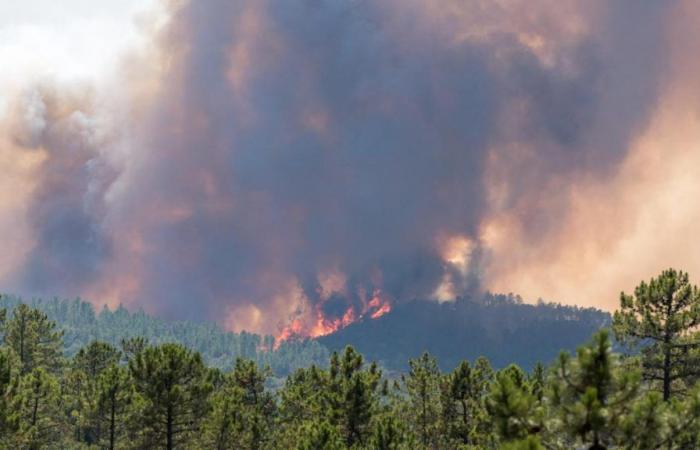Lhe Member States of the European Union gave their final green light on Monday to the adoption of legislation which requires the restoration of damaged ecosystems, an about-face by the Austrian Minister of the Environment making it possible to achieve the required majority after months of blockage.
The decision, taken during a meeting of EU environment ministers in Luxembourg, allows the entry into force of this key text of the Green Deal, announced the Belgian presidency of the EU. It had already been validated by the European Parliament following a bitter political battle, particularly concerning its impact on agricultural land.
Until now, Austria had officially chosen to abstain due to divisions within the ruling coalition. Conservative Chancellor Karl Nehammer deemed the vote of his Green Minister Leonore Gewessler “illegal”, threatening to bring an “appeal for annulment before the European courts”.
The Belgian Alain Maron, whose country holds the presidency of the EU until the end of June, however considered that it was an “internal quarrel” in Austria, recalling that “it is the ministers around from the table who express themselves.”
“A historic victory”
The legislation, the adoption of which was hailed as “a historic victory” by the environmental NGO WWF, requires the establishment by 2030 of measures to restore ecosystems on 20% of land and marine spaces on a global scale. of the EU, and to restore at least 30% of habitats (wetlands, forests, etc.) in poor condition.
Other provisions aim to improve criteria measuring the health of forests, remove dams on waterways and stop the decline of bees.
After an intense political battle, particularly concerning the impact on agricultural land, negotiators from the European Parliament and member states agreed in mid-November 2023 on a watered-down version of this “restoration of nature” legislation.
The agreement was then ratified as is at the end of February by MEPs in plenary session.
Belgium abstained
But the final formal green light from the Twenty-Seven, essential, was long overdue, due to lack of the required majority (at least 15 countries representing 65% of the EU population): three States (Sweden, Netherlands, Italy) intended to vote against, and five (Belgium, Austria, Poland, Finland, Hungary) abstained.
They were particularly alarmed by new charges for farmers, obstacles to the powerful forestry of Scandinavian countries or increased interference from the EU.
Despite Belgium’s abstention, Ecolo described the adoption of the European law on nature restoration as a “victory for nature” and a “success for the Belgian presidency”.
“The message is clear: we must continue to realize and implement the Green Deal. This law on the restoration of nature, although imperfect, remains essential with a basis for future, more ambitious measures in terms of restoring our environment and combating the collapse of biodiversity,” stressed the French-speaking Greens in a statement.
Austria’s about-face
During the debate on Monday, only the Austrian minister changed her position around the table, which was enough to change the outcome of the vote that followed.
“No government or party can ignore the interests of environmental protection and nature conservation,” insisted Ms. Gewessler upon her arrival at the meeting, welcoming “good compromises and balanced measures.”






